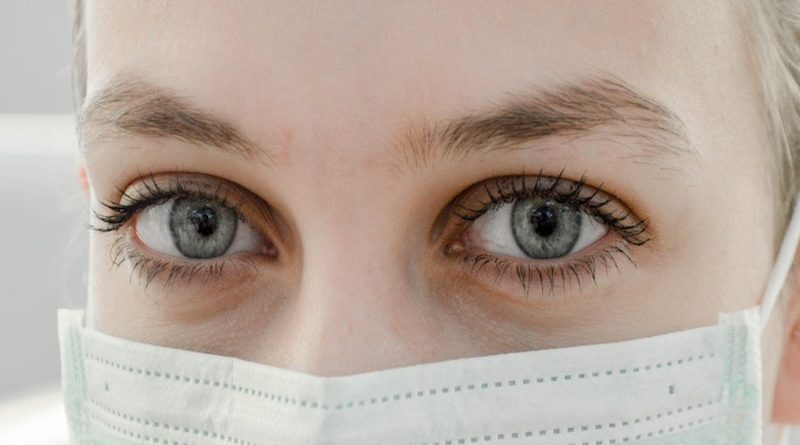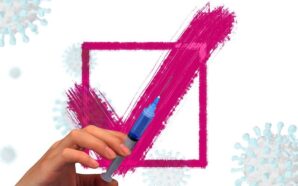April 20th, 2020, Riyadh (Saudi Arabia): Women 20 (W20), the Women’s Engagement Group, have supported the idea proposed at the virtual meeting of Health Ministers from the G20 countries to create a new global health task force to tackle pandemics. The W20 urges Ministers to appoint women to a new task force, as an increase the representation of women in global health security surveillance, detection and prevention mechanisms will lead to more balanced decision-making. The W20 calls for the work of the taskforce to explicitly recognize the role of women in fighting the pandemic and to take specific measures to address their specific healthcare needs.
Pandemics make existing gender inequalities for women and girls worse, and can impact their treatment and care. According to The Lancet “women carry a different kind of burden from COVID-19” with inequalities disproportionately affecting their wellbeing and economic resilience during lockdowns, an increased burden on care, and growing reports of domestic violence. As health systems become stretched, concerns about disruptions to women’s access to healthcare including pre- and post-natal care and sexual and reproductive health are rising. The G20 Health Ministers’ agreement to improve responses by ‘sharing knowledge and closing the gap in response capabilities and readiness’, is a welcome step that should help policy-makers understand the gendered impact of pandemic response policies.
Women 20 Chair Dr. Thoraya Obaid, on behalf of W20’s international delegates, called: “W20 urges the G20 Health Ministers in their coordination of efforts – including any new task force- to explicitly discuss and recognize the role women are playing in fighting the pandemic, and the impact it has on them as healthcare system users.
Women are a vital part of the healthcare infrastructure that is battling the pandemic head-on – both directly, as women comprise almost 7 out of 10 health and social care workers; and indirectly as unpaid carers, contributing $1.5 trillion to the global health economy even before these extraordinary times. Their needs merit dedicated attention as workers and as receivers of care themselves.”
In addition to calling for explicit recognition of the impact the pandemic and national responses are having on women, the W20 calls on Health Ministers to consider specific measures as part of their next steps response, including:
-
As part of addressing systemic weaknesses: ensure greater protection for women working in healthcare and as receivers of care
- Implement protections for healthcare and other frontline workers by expanding safety nets through leave entitlements and support payments.
- Work with Finance Ministerial to introduce incentives for employers to implement measures that recognize the role of women as caregivers for children, sick, disabled and elderly family members, and do not penalize them – a vital part of the indirect healthcare effort to stem the pandemic.
-
As part of co-ordinated global responses: accelerate inclusive decision-making
- Appoint women to the new global health task force to deliver balanced policy-making that ensures the needs of women during the pandemic are met.
- Accelerate measures to include women in national and global COVID-19 outbreak preparedness, response policy, and operational spaces in line with recommendations by the WHO Executive Board and the OECD.
- Ensure women’s representation at community-level decision-making, as contributors to identifying local trends and responsive policies.
-
As part of knowledge sharing: adopt data-driven policies and include the collection of data on the impact of the pandemic on women
- Encourage the expansion and sharing of data collection, reporting and analysis on the gendered impact of pandemic response policies.
o This should include the different types of vulnerabilities women face due to discriminations based on age, race, ethnicity, religion, disabilities, and health conditions.
- Review the gendered implications of quarantines, such as whether men and women’s different physical, cultural, security, and sanitary needs are recognized in service provision.
-
As part of placing people’s health and well-being at the heart of all decisions: adopt responsive measures to address the rise in gender-based domestic violence cases
- Increase resources for protection and assistance from gender-based violence including hotlines and monitoring.
- Equip communities to take integrated measures to prevent domestic violence: increase outreach and support services for victims and promote knowledge sharing around good practices.
The Women 20
The Women 20 (W20) is an official G20 engagement group established during the Turkish presidency in 2015. It is a policy recommendation engagement group which is part of the G20 process but is independent from governments. In its functioning, it mirrors the G20 process. Its primary objective is to ensure that the gender considerations are mainstreamed into G20 discussions and translate into the G20 Leaders’ Declaration as policies and commitments that foster gender equality and women’s economic empowerment.
The W20 is formed of a transnational network of delegates representing non-government women’s organizations, civil society, female entrepreneurs, businesses, and think tanks across G20 member states.
Response to COVID-19
The world is facing an unprecedented pandemic that is impacting every facet of day-to-day life and the global economy. Unless urgent action is taken, women stand to bear the brunt and be disproportionately negatively impacted. G20 leaders have an opportunity to develop policy responses to the pandemic that immediately address women’s roles in healthcare, unpaid care and the workforce. The 2020 Presidency can also build a foundation for gender equitable economic opportunity as we start to rebuild economic sectors and labor forces. Find more details on W20’s call to action here.
Photo by Ani Kolleshi on Unsplash











